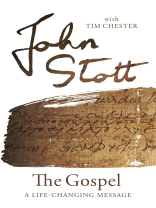What is the authentic gospel? How do we answer the sceptics?
Christianity is not a religion, but God’s good news for the world. This implies that it has both a divine origin and a human relevance: it comes from God and it speaks to our condition.
So, before we ask, 'What is the gospel?’, we need to ask, 'What is a human being?’
Chapter 1: The human paradox looks at what the Bible teaches and what our experience endorses: the glory and shame of our humanness, both our dignity as creatures made in God’s image and our depravity as sinners under his judgement.
Chapter 2: Human freedom: what is traditionally called 'salvation’, seen in terms of 'authentic freedom’.
Chapters 3 and 4: The central themes of the death and resurrection of Jesus, securing our freedom. This section also looks at a number of objections and denials.
Chapter 5: The far-reaching implications, both for faith and for life.
Radical indeed is the discipleship which takes all of this and Christ’s lordship seriously. It’s nothing short of a life-changing message.
Spis treści
About the authors viii
Preface ix
A note to the reader xi
Series introduction: the Contemporary Christian – the then and the now 1
The Gospel: introduction 9
1 The human paradox 11
2 Authentic freedom 24
3 Christ and his cross 35
4 The relevance of the resurrection 48
5 Jesus Christ is Lord 63
Conclusion: the now and the not yet 77
Notes 87
O autorze
John Stott exercised a worldwide ministry as a church leader, Bible expositor and author. His bestselling books have been translated into numerous languages, won many awards and shaped whole generations of ministers, thinkers, writers and bloggers. John was Rector Emeritus of All Souls, Langham Place, London and Founder-President of the Langham Partnership. He was awarded the CBE in the Queen’s 2006 New Year honours.







![Pokrywa Brian Schrag & Julisa Rowe: Community Arts for God's Purposes [Chinese] 貼近神心意的社群藝術 Pokrywa Brian Schrag & Julisa Rowe: Community Arts for God's Purposes [Chinese] 貼近神心意的社群藝術](https://static.worldofdigitals.com/thumb_webp/740/9781645083740.webp)




